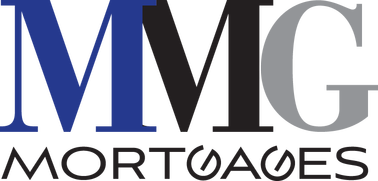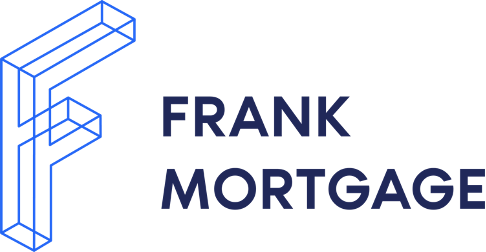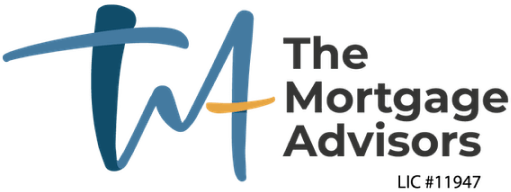Best Mortgage Rates in British Columbia
Compare mortgage rates from British Columbia's top banks, credit unions and brokers.
Today's Best Mortgage Rates in British Columbia
Evaluate British Columbia’s best mortgage rates in one place. You can compare the most current mortgage rates and monthly payments from 175+ banks and lenders across British Columbia.
Rates are based on an average mortgage of $500,000 and subject to change based on filter criteria.
| Lender
|
Insured
|
Insurable
|
Uninsured
|
|---|---|---|---|
|
MMG Mortgages
|
3.99%
$2,627.39 / month
|
4.19%
$2,681.85 / month
|
4.14%
$2,668.19 / month
|
|
Mortio Financial Corp
|
3.99%
$2,627.39 / month
|
4.24%
$2,695.56 / month
|
4.14%
$2,668.19 / month
|
|
Frank Mortgage
|
4.09%
$2,654.55 / month
|
4.19%
$2,681.85 / month
|
4.09%
$2,654.55 / month
|
|
Northwood Mortgage Ltd.
|
4.14%
$2,668.19 / month
|
4.24%
$2,695.56 / month
|
4.24%
$2,695.56 / month
|
|
Innovation Federal Credit Union
|
4.39%
$2,736.87 / month
|
4.39%
$2,736.87 / month
|
4.39%
$2,736.87 / month
|
|
True North Mortgage
|
2.99%
$2,363.66 / month
|
2.99%
$2,363.66 / month
|
2.99%
$2,363.66 / month
|
|
The Mortgage Advisors
|
3.87%
$2,594.98 / month
|
3.87%
$2,594.98 / month
|
3.87%
$2,594.98 / month
|
|
Nesto
|
3.91%
$2,605.76 / month
|
3.91%
$2,605.76 / month
|
3.91%
$2,605.76 / month
|
|
Hypotheca
|
3.94%
$2,613.86 / month
|
3.94%
$2,613.86 / month
|
3.94%
$2,613.86 / month
|
|
MortgagestoGo
|
3.94%
$2,613.86 / month
|
3.94%
$2,613.86 / month
|
3.94%
$2,613.86 / month
|
|
One Link Mortgage & Financial
|
3.95%
$2,616.57 / month
|
3.95%
$2,616.57 / month
|
3.95%
$2,616.57 / month
|
|
Monster Mortgage
|
3.99%
$2,627.39 / month
|
3.99%
$2,627.39 / month
|
3.99%
$2,627.39 / month
|
|
The Police Credit Union
|
3.99%
$2,627.39 / month
|
3.99%
$2,627.39 / month
|
3.99%
$2,627.39 / month
|
|
Northern Birch Credit Union
|
3.99%
$2,627.39 / month
|
3.99%
$2,627.39 / month
|
3.99%
$2,627.39 / month
|
|
City Wide Financial Corp
|
3.99%
$2,627.39 / month
|
3.99%
$2,627.39 / month
|
3.99%
$2,627.39 / month
|
|
Sudbury Credit Union
|
3.99%
$2,627.39 / month
|
3.99%
$2,627.39 / month
|
3.99%
$2,627.39 / month
|
|
Mainstreet Credit Union
|
3.99%
$2,627.39 / month
|
3.99%
$2,627.39 / month
|
3.99%
$2,627.39 / month
|
|
East Coast Mortgage Brokers
|
4%
$2,630.10 / month
|
4%
$2,630.10 / month
|
4%
$2,630.10 / month
|
|
Prospera Credit Union
|
4.04%
$2,640.95 / month
|
4.04%
$2,640.95 / month
|
4.04%
$2,640.95 / month
|
Today's Best Mortgage Rates in British Columbia
Evaluate all of British Columbia's best mortgage rates in one place. RATESDOTCAs Rate Matrix lets you compare pricing for all key mortgage types and terms.
Rates are based on an average mortgage of $500,000 and subject to change based on filter criteria.
Updated 20:28 on Jul 18, 2025| Placeholder |
Insured
The rates in this column apply to borrowers who have purchased mortgage default insurance.
This is required when you purchase a home with less than a 20% down payment.
The home must be owner-occupied and the amortization must be 25 years or less.
|
80% LTV
The rates in this column apply to mortgage amounts between 65.01% and 80% of the property value. The home must be owner-occupied and have an amortization of 25 years or less. You must have purchased it for less than $1 million. These rates are not available on refinances. Refinances require "Uninsured" rates.
|
65% LTV
The rates in this column apply to mortgage amounts that are 65% of the property value or less. The home must be owner-occupied and have an amortization of 25 years or less. You must have purchased it for less than $1 million. These rates are not available on refinances. Refinances require "Uninsured" rates.
|
Uninsured
The rates in this column apply to purchases over $1 million, refinances and amortizations over 25 years. More info on the differences between insured and uninsured rates.
|
Bank Rate
Bank Rate is the mortgage interest rate posted by the big banks in Canada.
|
|---|---|---|---|---|---|
| 1-year fixed rate | 4.69% | 4.19% | 4.19% | 5.59% |
5.49%
|
| 2-years fixed rate | 4.04% | 3.89% | 3.89% | 4.54% |
4.79%
|
| 3-years fixed rate | 3.99% | 4.00% | 4.00% | 4.24% |
4.29%
|
| 4-years fixed rate | 3.99% | 4.14% | 4.14% | 4.44% |
4.39%
|
| 5-years fixed rate | 3.91% | 3.89% | 3.89% | 3.91% |
4.09%
|
| 7-years fixed rate | 5.04% | 4.24% | 4.24% | 5.19% |
5.00%
|
| 10-years fixed rate | 5.24% | 4.34% | 4.34% | 5.29% |
6.09%
|
| 3-years variable rate | 4.15% | 4.30% | 4.30% | 4.40% |
6.35%
|
| 5-years variable rate | 4.05% | 4.05% | 4.05% | 4.05% |
4.25%
|
| HELOC rate | N/A | N/A | N/A | N/A |
N/A
|
| Stress Test | 5.25% | 5.25% | 5.25% | 5.25% |
N/A
|
Today's Headline
Ask the Mortgage Expert: Why this could be your window of opportunity into Canadian real estate
Predicting when the absolute bottom will come is like catching a falling knife. But according to mortgage broker and resident expert Steve Garganis, what we have now is a market that is taking a breath, where genuine buyers have a real advantage.
Read moreJul.16.2025
On this page:
- British Columbia mortgage rate market characteristics
- Mortgage rate trends in British Columbia
- How to compare British Columbia mortgage rates from top lenders
- British Columbia housing market
- Average house prices in British Columbia May 2024 vs. May 2023
- What affects mortgage rates in British Columbia?
- Average mortgage payments in British Columbia 2022-2023
- Tips for first-time homebuyers in British Columbia
- Best mortgage lenders in British Columbia
- Top British Columbia mortgage brokers and credit unions in British Columbia
- Frequently asked questions about mortgages in British Columbia
British Columbia mortgage rate market characteristics
A recent survey by a large real estate company shows that half of Canadians living in the Vancouver area would consider buying a home in an affordable city if they could find work, or work remotely.
There’s a reason for that. British Columbia has some of the highest real estate prices in the country. According to the BC Real Estate Association, the average MLS residential price in BC in April 2024 was up 1.4% to $1 million, compared to an average price of $992,440 in the same time last year. In Greater Vancouver, the average price was more than $1 million, coming in at $1.049 million. Within Canada, the average price was $703,446.
BC also has the highest average mortgage loan value in the country. By comparison, the national average, as of the third quarter 2023, stood at $327,899. In BC that value was $454,516.
Interestingly, the population moving out of BC has grown. In 2023, Statistics Canada said net interprovincial migration was negative for the first time since 2012 at negative 8,624 people. In that same year, more than 67,000 people left the province.
And yet, housing prices remain the highest in the country. Why?
Despite the mass migration, BC’s population has been growing. As of January 1, 2024, Statistics Canada says that BC’s population grew to more than 5.6 million people with an increase of 178,515 people. A large chunk of that was driven by immigration with more than 70,000 people moving to the province.
But immigrant or long-standing citizens have a choice in the province when looking for mortgage options. An analysis from the Canadian Credit Union says BC has the largest asses base of credit union movement in Canada and most number of credit unions in the country. This gives people looking for a home a much wider opportunity for mortgage financing when shopping for the cheapest mortgage rates.
Because competition is high among different financial service providers, and serving a relatively large population, mortgage rates in BC are relatively low, as they are in Ontario, but compared to other parts of the country.
Mortgage rate trends in British Columbia
It appeared for a time that Canada was headed for a recession. In Q4 2023, the Canadian economy managed to avoid that even though Gross Domestic Product was on the down swing.
At the start of the pandemic in 2020 until March 2022, Canadian homebuyers and owners enjoyed low mortgage rates, which gave an impetus to the housing market. But rising inflation came as a harsh reality that the Bank of Canada had to tackle.
The Bank’s policy interest rate hikes starting March 2022, followed by 10 subsequent rate hikes until July 2023, came as a hard shock for Canadian real estate investors and homebuyers. The rate hikes not only shocked the housing market but also diminished aspirations of many first-time homebuyers who had to either wait for the house prices or mortgage rates to go down.
Between 2020 and 2022, before the Bank of Canada’s rate hike spree began in March 2022, variable mortgage rates were lower than fixed rates and the preferred interest rate over the latter. However, that changed as fixed mortgage rates (which are directly impacted by bond yields) began to hover lower than the variable rates starting December 2022. Variable rates kept increasing until July 2023 when Bank of Canada decided to halt its policy interest rate hike at 5%. In terms of fixed rates, October 2023 saw bond yields peak at a 17-year high but then fall again over the next month. This, as inflation and the economy showed positive signs of recovery. With that, lenders saw the possibility of future rate cuts and began reducing their rates somewhat. The Bank of Canada cut its target rate by 0.25%, and caught up with them, in June 2024.
Rates in BC have been steadily declining and are expected to do so, as long as the Bank of Canada cuts rates as well.
Our RATESDOTCA inhouse data shows the difference between the lowest 5-year fixed mortgage rate and lowest 5-year variable mortgage rate between 2020 and 2024 in British Columbia, very similar to everywhere else in the country. As you can see from the graph, the 5-year variable rate mortgage increased significantly causing much distress to new homebuyers or existing homeowners looking for a renewal. Those borrowers who bought homes at lower rates in 2020 would soon be in for a shock with looming renewals at higher mortgage rates.
How to compare British Columbia mortgage rates from top lenders
Comparing mortgage rates from various lenders would give you a clearer picture of what’s the best rate for you. Lenders in British Columbia will check your financial situation and offer you a rate. No two lenders offer the same mortgage rate, so it is advisable to reach out to as many lenders as possible and seek quotes.
At RATESDOTCA, we help you get quotes from 50+ mortgage lenders in just a few minutes. Your quotes from 50+ lenders from across Canada are only a click away. All you have to do is answer a few questions and wait for your rates to appear.
British Columbia housing market trend
British Columbia, despite an increase in people moving out of the province, has seen its population grow as a result of high immigration levels. As of January 1, 2024, Statistics Canada says that BC’s population reached an estimated 5.6 million, growing by 178,515 people in 2023, an annual growth rate of 3.3%. This is also the highest annual population growth since 1971 in terms of population counts. In Q4 2023, 32,909 immigrants moved to BC.
BC, unlike other parts of the country, is an attractive destination for a more moderate climate, rugged outdoor landscape, and in many ways a gateway to trade and commerce with Pacific nations overseas.
Based on British Columbia Real Estate Association (BCREA) data, May 2024 sales were down 11.6% compared to May 2023, which amounts to 8,075 unit sales being recorded that month. Greater Vancouver and Fraser Valley has the highest units sold in May, 2,733 and 1,433 units sold, respectively.
The average price for a residential home in BC was also down 1.5% to $1,001,736 in May 2024 compared to an average price of $1,017,310 in May last year. This could be mainly due to the reduction in house prices y-o-y in Powell River. The area recorded a 30.7% decrease in house prices in May 2024 compared to May 2023. The residential average price in Powell River in May 2024 was $539,153 compared to $778,299 in May 2023. Residential unit sales were flat year-to-date at 31,573 units sold.
While there has been a pick-up in sales activity to more normal levels in May 2024 compared to previous months, combined with increasing increased active listings, it still does not match the market level that was this time last year (May 2023).
According to the BCREA housing data, May 2024 residential active listings were up 42.4% to 39,602 compared to 27,814 active residential units listed in May 2023. However, the unit sales in May 2024 were lower at 8,075 unit sales compared to 9,136 units sold in May 2023. This clearly shows that while people are eager to list and sell their properties, potential buyers are reluctant due to high interest rates, and are waiting on the sidelines for the Bank of Canada to cut interest rate.
BCREA reports that in 2023, the total sales dollar volume was $71 billion, an 11.5% decline from 2022.BCREA Chief Economist Brendon Ogmundson said, “the highest mortgage rates in over 15 years led to the slowest sales in a decade for BC.”
With the Bank of Canada rate cuts on the horizon, the outlook for 2024 H2 appears much brighter. The BOC rate hikes from March 2022 to July 2023 was terrible for the real estate market all over the country for sure.
Average house prices in British Columbia May 2024 vs. May 2023
It would seem that BC had experienced a dip in housing prices in as buyers (and sellers) stayed on the sidelines heading into summer, perhaps waiting for interest rates to come down. As inflation has decreased and the Bank of Canada has now started reducing rates, buyers have come back to the market driving up prices in the province. The sentiment that rates would come down, even before they did, also change the mentality of buyers to start looking. Here is the difference in unit sales and average house price in May 2024 compared to the same period last year.
| Real Estate Board | May 2024 Residential Average Price | May 2023 Residential Average Price | % change | May 2024 Unit Sales |
|---|---|---|---|---|
| BC Northern | $418,408 | $417,118 | 0.3 | 493 |
| Chilliwack | $830,082 | $806,878 | 2.9 | 291 |
| Fraser Valley | $1,074,923 | $1,091,195 | -1.5 | 1,433 |
| Greater Vancouver | $1,345,157 | $1,312,157 | 2.5 | 2,733 |
| Interior* | ||||
| Okanagan | $749,878 | $787,937 | -4.8 | 909 |
| Kamloops | $607,877 | $600,883 | 1.2 | 279 |
| Kootenay | $563,758 | $544,989 | 3.4 | 322 |
| South Peace River** | $306,847 | $284,303 | 7.9 | 47 |
| Powell River | $539,153 | $778,299 | -30.7 | 34 |
| Vancouver Island | $755,148 | $731,781 | 3.2 | 794 |
| Victoria | $1,026,217 | $1,018,619 | 0.7 | 740 |
| Province Total (round off) | $1,001,736 | $1,017,310 | -1.5 | 8,075 |
Source: BCREA
What affects mortgage rates in British Columbia?
Mortgage rates reflect not only Bank of Canada target rates but your individual circumstances. While some external factors are beyond your control and can impact your mortgage others can be controlled by you. Here are some factors that can impact your mortgage rate in BC:
- Bond Market – Bonds affect mortgage rates because they compete for similar investors – those looking for fixed or stable returns with a low risk. Bonds are also long-term and low risk products. Mortgages are riskier, however. As bond rates rise, banks are less likely to invest in mortgages because of that risk, and so interest rates go up accordingly. Banks can make more money selling mortgages but charge a premium because of that risk. And because banks rely on bond yields to finance the expenses of holding mortgages, mortgage rates will fluctuate as bond yields do.
- Supply and Demand on Real Estate – Market demand can also affect mortgage rates. As demand heats up, prices for homes go up but competition from lenders could be a bonus for home buyers looking to buy homes, with banks offering lower rates to win business.
- Factors That Determine Your Own Mortgage Rate – Inflation, supply and demand, and the Bank of Canada will influence mortgage rates and trends, but there are factors that affect you personally.
For example:
- Credit Score – This will show lenders your trustworthiness and how likely you are to pay down debt.
- Down Payment – The more you save and have for a down payment, the lower your rate may be. Lenders want to reduce risk and so if you have more to put down towards your house, the more you may get a lower rate.
- Rate Type – If you choose a fixed rate mortgage your payment and rate will stay the same throughout your full term. A variable rate mortgage will fluctuate based on the prime lending rate set by the lender.
- Mortgage Loan Term – Choosing fixed rate mortgages can allow you to lock into lower rates if, for example, you choose a 5-year term versus a shorter 1-year term.
- Personal Income – Mortgage lenders will want to know you can pay your mortgage and your debt to income ratio (percentage that evaluates your debt compared to your gross income) can sustain payments.
- Appraisal Value – Appraisals can change the value of the home you are purchasing and ultimately your mortgage rate. If you’ve saved 20% for a down payment and then the appraiser values the home less than you thought, your down payment actually becomes less than 20%, which could affect the risk factor and mortgage rate your lender would be willing to provide.
- Amortization – In its 2024 budget the Federal government said first-time home buyers, purchasing new construction, and who require a high-ratio mortgage will be able to amortize their mortgage over 30 years. The current rule is people who pay less than 20% down payment can have 25 years, while those that pay more can have up to 30-35 years to pay it back.
British Columbia average new mortgage loan value 2022-2023
Average new mortgage loan values have been on an interesting journey in BC. The hot real estate market as of the first quarter in 2019 and up until the third quarter of 2023 saw a gradual increase. In 2019, the average new mortgage loan stood at 344,204 and grew to 489,628 in 2021 as prices climbed steadily as well.
Following that, and after the Bank of Canada starting increasing rates to curb inflation, changes occurred in the new mortgage loan values. In the second quarter of 2022, loans peaked at $491,960 but then dropped over the next three quarters. It wasn’t until the second quarter of 2023 when loans started edging up again to 439,590 (after a low of 429,370). Demand grew as pent up buyers started coming back to the market and anticipation grew of a lower interest rate environment, something we are just starting to see now. After seeing higher average value of new mortgage loans in Q1 and Q2 of 2022, the amount started to decline in Q4 2022 and Q1 2023 mainly due to the pressure higher interest rates were causing. Most borrowers could not afford or has difficulty in getting approval for loan and borrowing at a higher rate. House prices also began to come down in Q4 2022 through to Q2 2023. The average value of new mortgage loans began picking up in Q3 2023 and Q4 2023 (but was lower than the previous quarter) because the summer housing market saw some respite with house prices picking up.
Average Value of New Mortgage Loans ($)
| Geography | 2022Q1 | 2022Q2 | 2022Q3 | 2022Q4 | 2023Q1 | 2023Q2 | 2023Q3 | 2023Q4 |
|---|---|---|---|---|---|---|---|---|
| Canada | $361,001 | $366,163 | $363,654 | $325,612 | $320,298 | $314,540 | $338,522 | $327,899 |
| British Columbia | $484,941 | $491,960 | $487,366 | $439,719 | $429,370 | $439,590 | $465,283 | $454,516 |
Source: CMHC-Equifax Canada
Average mortgage monthly payment in British Columbia 2022-2023
The Bank of Canada’s consistent interest rate hikes from March 2022 to July 2023 made it difficult to qualify for mortgage loan for many potential buyers.
The average scheduled monthly payment of new mortgage loans, according to a CHMC report, in BC compared to other provinces is listed below. The significant increase in the average monthly mortgage payment started in Q3 2022 mainly due to the rise in Bank of Canada’s policy interest rates since April 2022. Moreover, since the Bank of Canada held its policy interest rate stable since July 2023, the housing market improved slightly as house prices increased but monthly payments increased as well due to still high interest rates
| Geography | Q1 2022 | Q2 2022 | Q3 2022 | Q4 2022 | Q1 2023 | Q2 2023 | Q3 2023 | Q4 2023 |
|---|---|---|---|---|---|---|---|---|
| Canada | $1,594 | $1,722 | $1,909 | $1,923 | $1,984 | $1,920 | $2,074 | $2,143 |
| British Columbia | $2,038 | $2,234 | $2,506 | $2,553 | $2,607 | $2,623 | $2,793 | $2,913 |
Source: CMHC
Both the national average and the BC average of scheduled monthly payments for new mortgages have increased over the past few years. It’s no surprise, given that 2022 marked the year that the Bank of Canada started to raise interest rates. At the same time, supply decreased and home prices continued to climb as inventory shrunk.
Tips for first-time homebuyers in British Columbia
Buying your first home is a serious decision but there are things to do ahead of time that can make the journey easier and less stressful.
- Understand your financial situation – Do an income analysis of your salary and debt. Calculate your credit score and other potential pitfalls to ensure you are ready to approach a lender for a mortgage.
- Consider all costs – Buying a home is more than the price of the house. There are legal fees, closing costs, perhaps the need for more home furnishings and more. Calculate what you can afford.
- First time home buyers’ program (BC) – This can reduce or eliminate the transfer tax you pay when you buy your first home. To qualify you have to be a Canadian citizen or permanent resident, have lived in BC for at least a year before the date you register the property, filed at least two income tax returns as a BC resident in the last six taxation years, have never owned a registered interest in a property that was your principal residents, and have never received a first time home buyers’ exemption or refund.
- Consider your mortgage options – You can choose from variable or fixed, which will depend on your comfort level and desire to have a fixed (or not) monthly budget.
- Location – It’s a real estate cliché but consider your future needs. Will you have a family? Do you need to be near a school or your work? Or amenities?
- Work with a real estate agent – They have knowledge and expertise about the market that you may not. They also (should) know the area and can guide you based on your budget and other needs.
- 30-year amortization for first-time homebuyers of new builds: In Budget 2024, the federal government announced some amendments to mortgage rules including allowing 30-year amortization on mortgages for first-time homebuyers purchasing newly built homes. Starting August 1, 2024, Canadians buying their first home, specifically a newly built home, can have additional five years to pay off the mortgage. Before this amendment, if your down payment was less than 20% of the price of your home, the longest amortization you were allowed was 25 years. Borrowers would need to satisfy some eligibility criteria set by the federal government to avail this benefit.
Best mortgage lenders in British Columbia
British Columbia has a robust mortgage market comprised of mortgage brokers, credit unions, Canada’s big banks, and of course a small percentage of private and alternative lenders.
British Columbia’s mortgage market, like many other parts of Canada, also sees aggressive competition from international banks and financial institutions, such as HSBC, as well as Canada’s Big 5 banks. CIBC and BMO have tended to dominate the market for higher-end properties, which comprises a large part of the Vancouver and Victoria real estate markets
Mortgage brokers are a third and vital component of British Columbia's competitive landscape, and they are a major reason why the province has the second-best mortgage rates of any province in the country.

How to get the lowest British Columbia mortgage rates
Finding the lowest mortgage rates in British Columbia and be done in a few ways:
- Comparison shop: Look at sites like RATESDOTCA that allow you to compare the lowest rates in your area. It only takes a few minutes to input your financing needs and you'll receive quotes immediately. Its free and simple to use.
- Maintain a good credit score: Banks charge customers based on their risk appetite. The higher the risk, the more your mortgage rate might be. Maintaining a good credit will show your lender you are a lower risk, which might help reduce your mortgage rate. A better score shows your lender that you are a risk worth taking and could lead to better rates.
- Decrease your debt-to-income ratio: This represents the percentage of your gross income used to pay off debts. The lower your debt ratio the more likely lenders are to lend you money at a better rate.
- Save money for a down payment: By giving a larger down payment, you can reduce the size of your mortgage and hopefully get a better rate.
Top British Columbia mortgage brokers
British Columbia’s population density is predominantly situated in and around the Greater Vancouver and Victoria areas, and in the southern part of the province’s interior, that allows for a greater concentration of mortgage providers in those markets. British Columbia mortgage brokers are often able to offer the lowest mortgage rates on the market. The largest brokerages operating in the province include:
- Quest Mortgage
- Rocket Mortgage
- MMG Mortgages
Some of the top online discount brokers that are licensed in British Columbia include:
- Butler Mortgage
- True North Mortgage,
- MortgagePal
- Spin Mortgage
- Dominion Lending Centres
- TMG The Mortgage Group
- M3 Mortgage Group (which consists of Mortgage Alliance, Mortgage Intelligence, Verico, Invis and Multi-Prêts).
Top credit unions in British Columbia
As mentioned earlier, British Columbia is home to a large and healthy contingent of credit unions operating in the province. In fact, three of the five biggest cooperative lenders in the country lend in British Columbia.
Some of the top British Columbia credit unions include:
- Coast Capital Credit Union
- Vancity (officially Vancouver City Savings Credit Union)
- Prospera Credit Union
- Salmon Arm Savings Credit Union
Some of the lowest mortgage rates in British Columbia can often be found from credit unions, particularly through their mortgage promos during the busy spring homebuying season.
If you’re shopping for a home, don’t rule out a mortgage from one of British Columbia’s top credit unions.
If you’re able to grab a great mortgage deal, it could be worth making the switch from your big bank or existing financial institution.
Frequently asked questions about mortgages in BC
Got more questions about British Columbia mortgages? We’ve got answers.
How much can I save by comparing the current British Columbia mortgage rates?
RATESDOTCA can help you save hundreds of dollars annually by simply comparing rates from 50+ lenders. You're making an informed decision based on all the choices rather than jumping on the first mortgage offer you see.
Why should I compare British Columbia mortgage rates with RATESDOTCA?
RATESDOTCA is one of the best places to compare mortgage rates. We have access to 50+ lenders across Canada, such as the Bank of Nova Scotia, TD Bank, National Bank, Desjardins, Home Trust, and many others, that are put side by side to find you the best deal possible.
When choosing a mortgage, you want to go into the situation with the most knowledge possible. When you compare current London mortgage rates on RATESDOTCA, you're doing important research ahead of a life-changing decision.
RATESDOTCA is constantly updated with the latest rates on the market, so check back frequently for new deals.
What is the minimum down payment required for a mortgage in BC?
The minimum down payment required for a mortgage in British Columbia, is consistent with the national guidelines set by the Canada Mortgage and Housing Corporation (CMHC). Here are the standard down payment requirements based on the purchase price of the home:
For homes priced up to $500,000: The minimum down payment is 5% of the purchase price.
For homes priced between $500,000 and $999,999: The minimum down payment is 5% of the first $500,000 and 10% of the portion exceeding $500,000.
For homes priced $1 million or more: The minimum down payment is 20% of the purchase price.
It's important to note that these are general guidelines, and specific lenders or mortgage insurers may have their own requirements. Additionally, a larger down payment can sometimes be advantageous for securing better mortgage terms and reducing the overall cost of borrowing.
How can I calculate how much my BC mortgage payments would be?
It doesn’t get simpler than this — RATESDOTCA has a range of mortgage calculators that you can use to determine your monthly mortgage payments. All you need to do is feed the mortgage tool with the required information and you’d get the mortgage amount that you’ll have to pay each month.



























